Bishop Hutterer reflects on LWF retreat for newly elected leaders
Presiding Bishop Elizabeth Eaton invited me and two other U.S. bishops (Bishop Susan Briner and Bishop Patricia Davenport) to participate in an annual retreat held early September for newly elected leaders by the Lutheran World Federation (LWF).
The LWF is a worldwide communion of Lutheran Churches encompassing 7 geographic regions, 148 member churches in 99 countries, with 75 million members worldwide. The ELCA is one of its member organizations. The LWF was established in 1947 after World War II as a means for church leaders to come together for reconciliation. Former enemies from places like Germany, England, Poland, France, Russia, Africa, and the United States came together to rebuild relationships and to work together in the name of Christ.
In addition to the three ELCA bishops, there were bishops and pastor presidents from Zambia, Ghana, South Korea, Thailand, northern India, Bolivia, the River Table (Argentina, Paraguay, Uruguay) and Peru. The newly elected leader from Cameroon was unable to procure a visa to attend. Two translators (Korean, Spanish) were present throughout to support us.
We met daily for prayer and worship, learned about the structure, governance, strategy and work of the various parts of the LWF. In Geneva, we met with key leaders in the LWF Communion Office. We shared our respective contexts for ministry, our sense of mission, our challenges, and ways we address these challenges. We had conversations about leadership as stewardship, biblical stories that shape our leadership, and joint opportunities and challenges in pastoral ministry.
In Wittenberg, we were joined by the Bishop of Hungary and the Bishop of Brunswick, Germany, who led us in bible studies and questions about what it means to be a bishop or pastor president in the church today. What are some common challenges? Where do we have unique challenges? How do we provide good governance in addition to leadership? We had daily worship in different languages.
We visited many sites of the Reformation. Town Church is widely seen as the birthplace of the Reformation. It was designed with the centrality of the Word and Sacrament in mind, and came to life with the paintings of Lucas Cranach. Luther baptized and preached there for many years. A highlight, and sacred moment for me, was to stand in the pulpit where Martin Luther gave over five hundred sermons.
We visited and worshipped at the Castle Church, where Luther and Melanchthon are buried, and where Luther nailed his 95 theses to the door. We also saw the Luther Garden, where 500 trees were planted in honor of the 500th anniversary of the Reformation, and we found our ELCA tree.
Reflections
I was aware of the work of LWF in refugee camps, especially in Africa, but learned how much more we do through the communion.
Good governance is critical. The value of a strong constitution, good policies, and adhering to boundaries is critical no matter where you live. This allows us to protect the church and the most vulnerable among us, and we must be vigilant and consistent with them.
“There is no church so big and so rich, that it wouldn’t depend on the gifts of others; there is no church so small and so poor that it wouldn’t be able to enrich others.”
We learned so much from one another. I’ve said many times, we all have something to learn and we all have something to teach.
Whether Ghana, Zambia, South America or the U.S.A we face the challenge of finding and raising up new leaders and equipping disciples. While the U.S. has significantly more financial resources and our clergy are paid better than any of the countries represented at the retreat, we still face the same challenges.
For example Pastor-President Adita, whose country borders Venezuela has some church members saying, “Choose between us and them.” The border and wall conversations are not unique to the United States and Mexico.
Every leader in attendance is concerned with viability and sustainability. While our circumstances vary, each leader is thinking and praying about how we share the story of Jesus and make disciples.
We are a global church. We are interconnected. We are better together for the sake of the Gospel. I had not known a lot about the LWF prior to this trip. Our global reach is incredible, and the way that we partner in the areas of theology, service, and mission is a joy to behold. This is a powerful witness in the world. I now have relationships with Lutheran leaders around the world.
Lutheran theology is a treasure. In a world where nothing seems to be free and the theology of glory can be attractive, the centrality of God’s grace and love in Jesus, confession, the theology of the cross, the priesthood of all believers provides powerful proclamation.
I am grateful for this opportunity to learn and thankful for the Lutheran World Federation’s staff who offered this retreat. I am also grateful for the Grand Canyon Synod, and Office of the Bishop staff, that allowed me to spend this time away. The experience provided spiritual renewal, learning, networking opportunities, and strengthened my sense of global church. Thanks be to God!
In Christ,
Deborah K. Hutterer, bishop
Grand Canyon Synod, ELCA
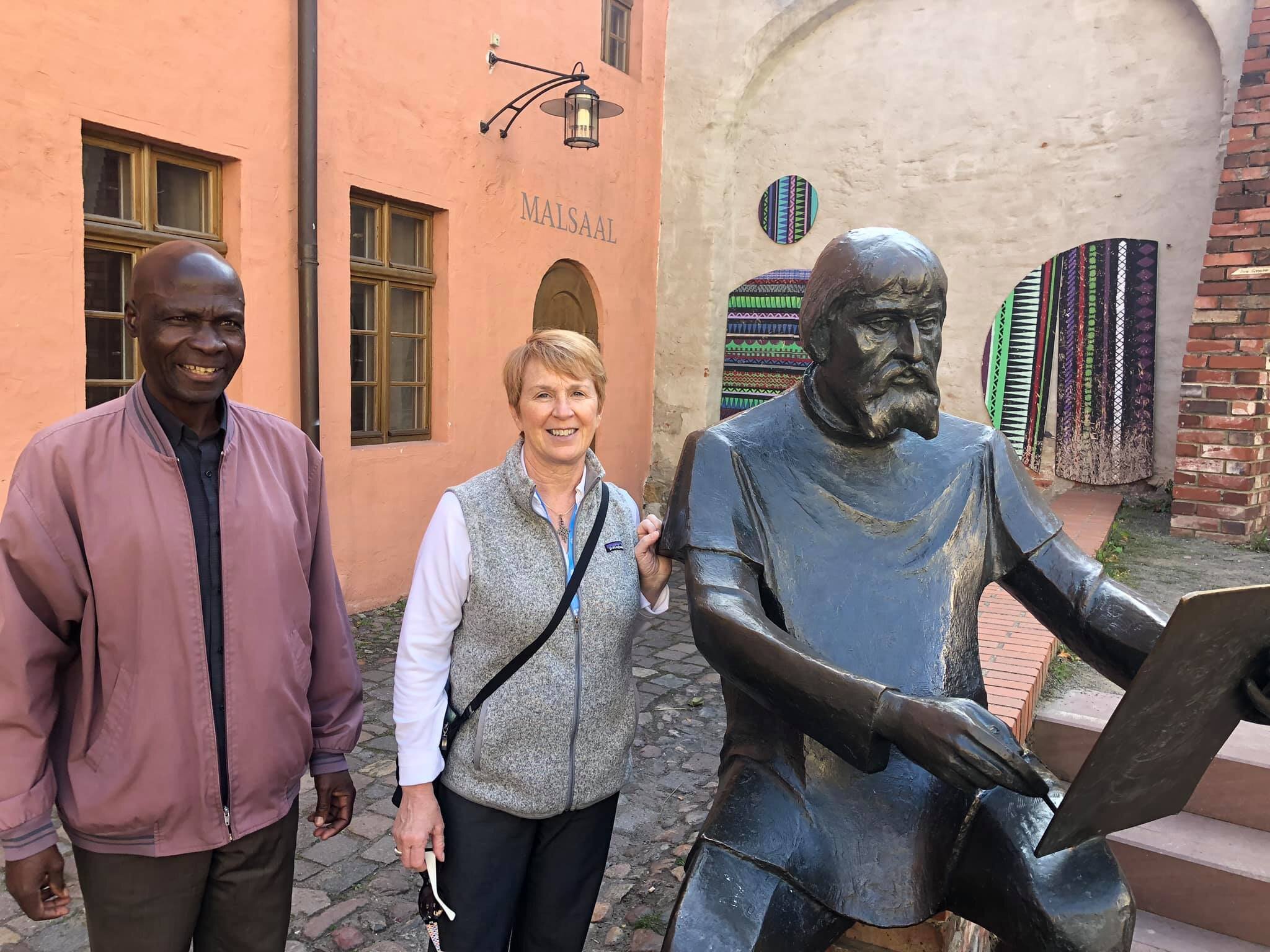
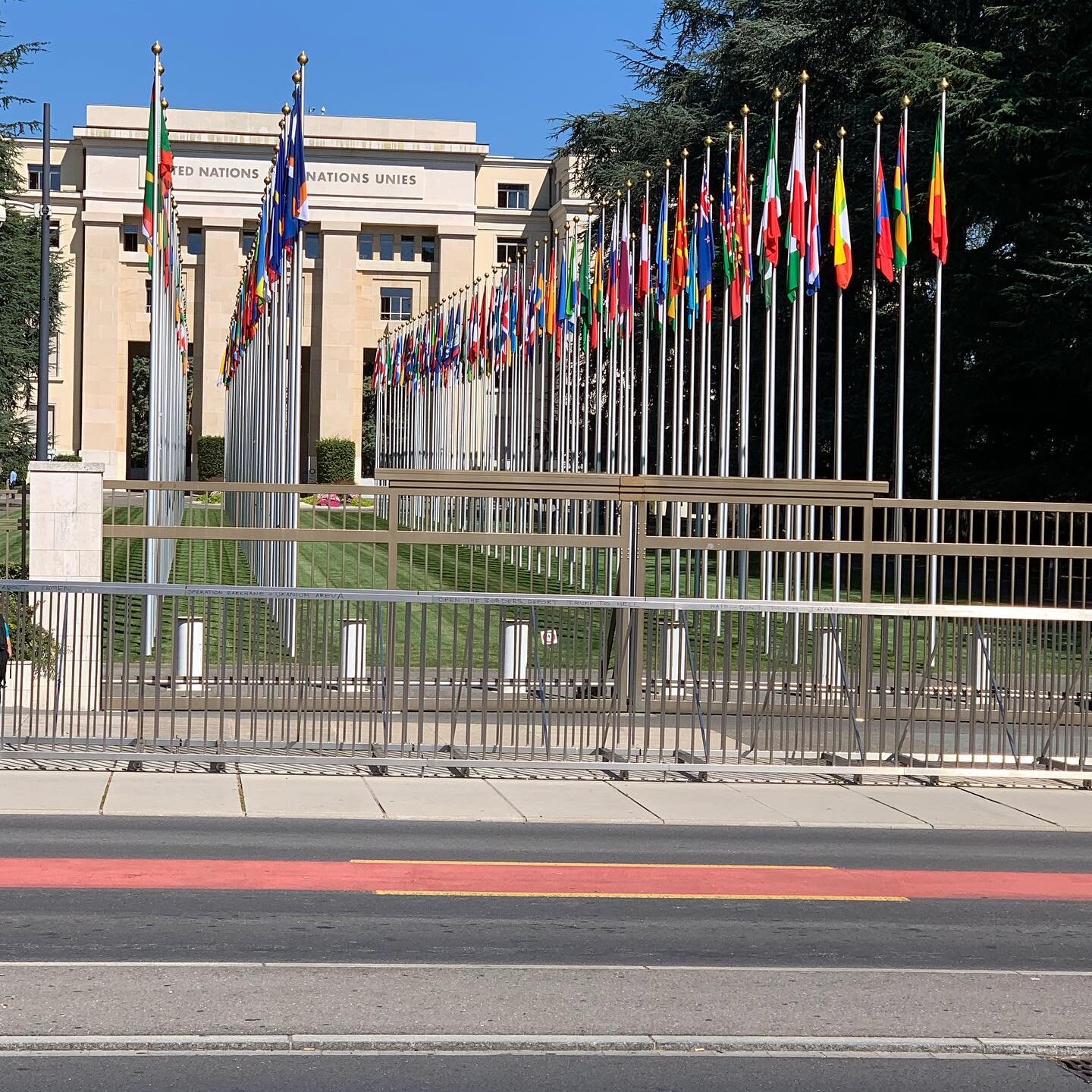
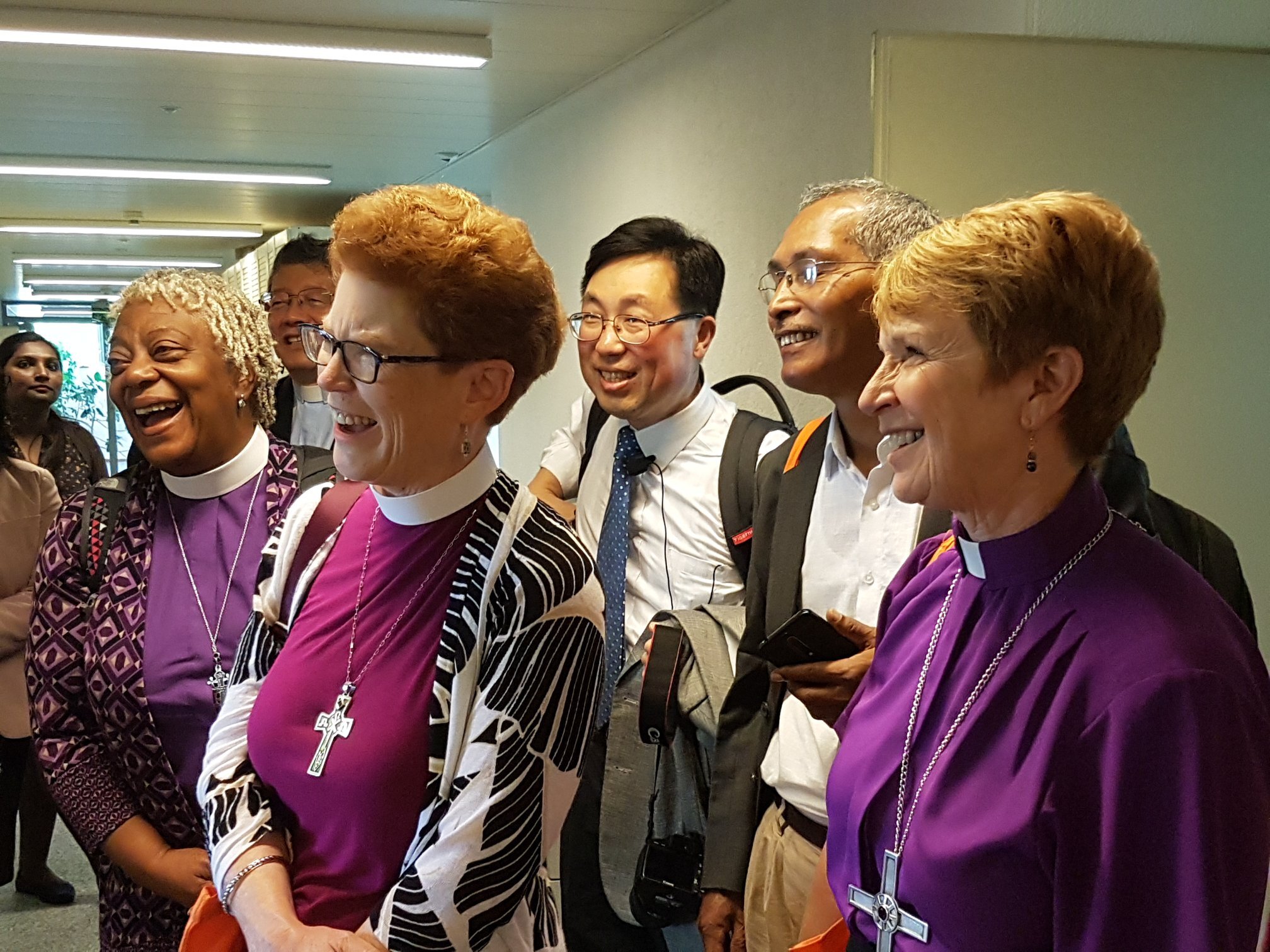
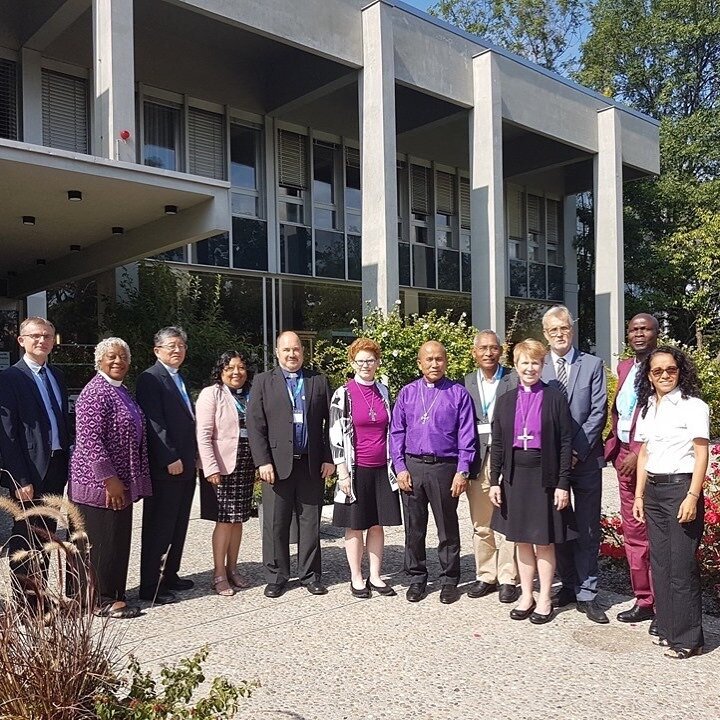
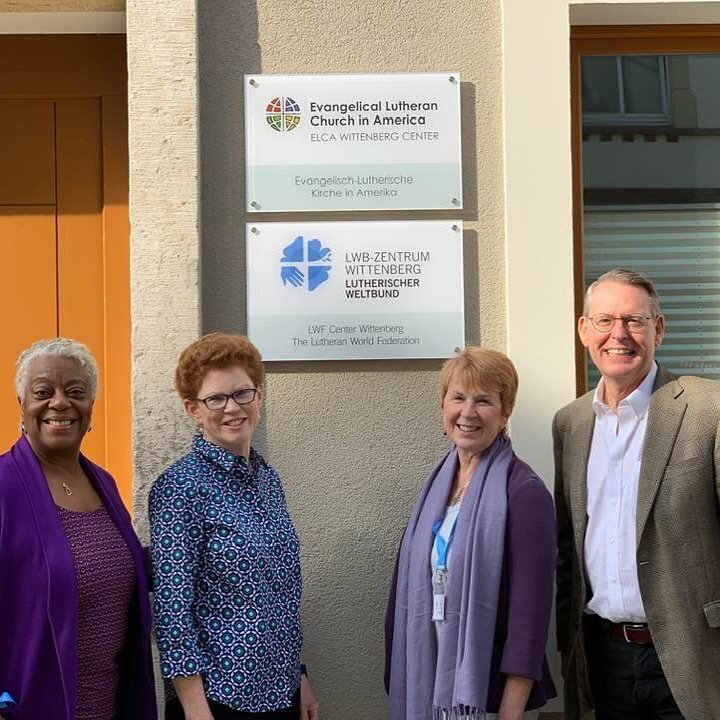
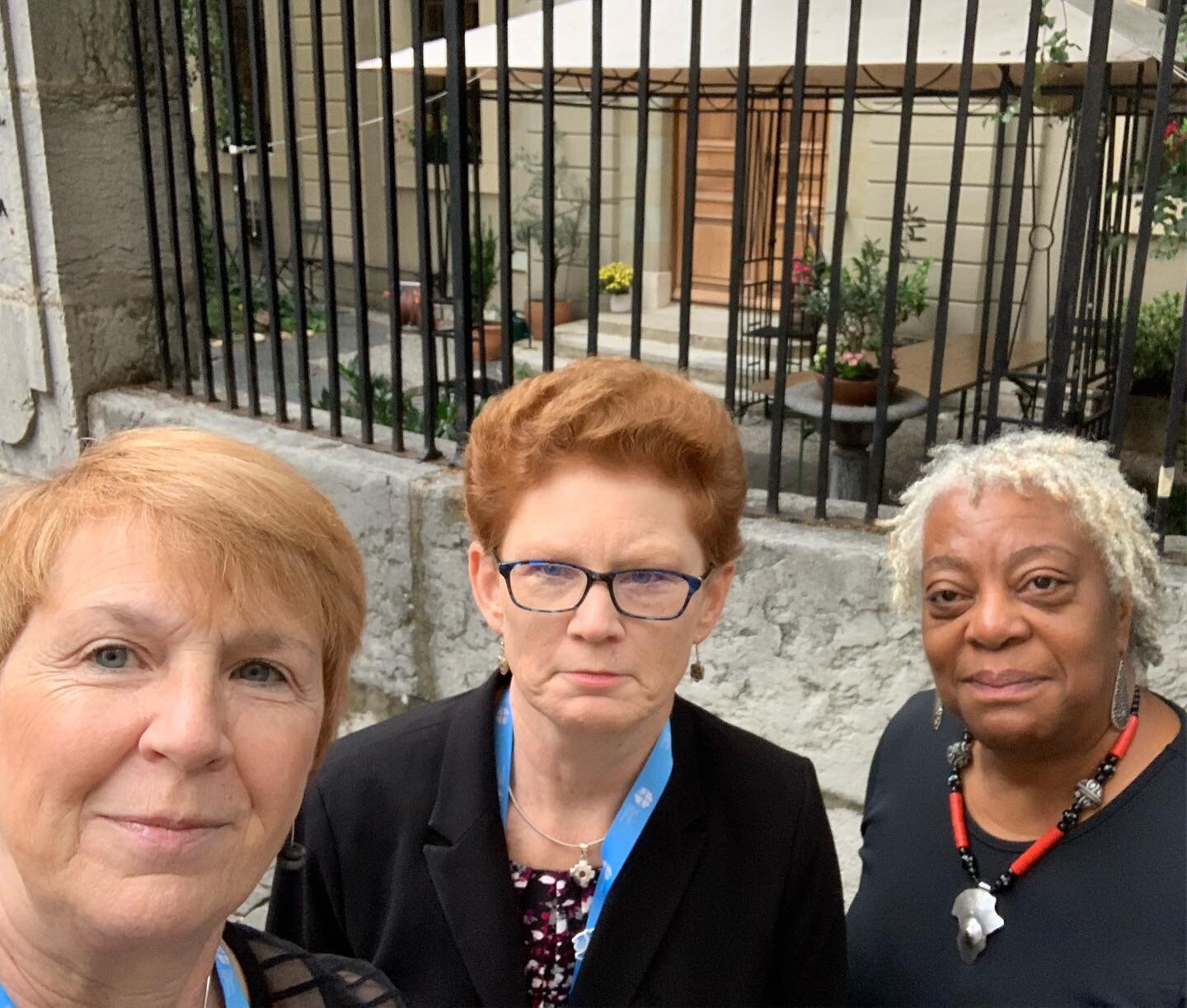
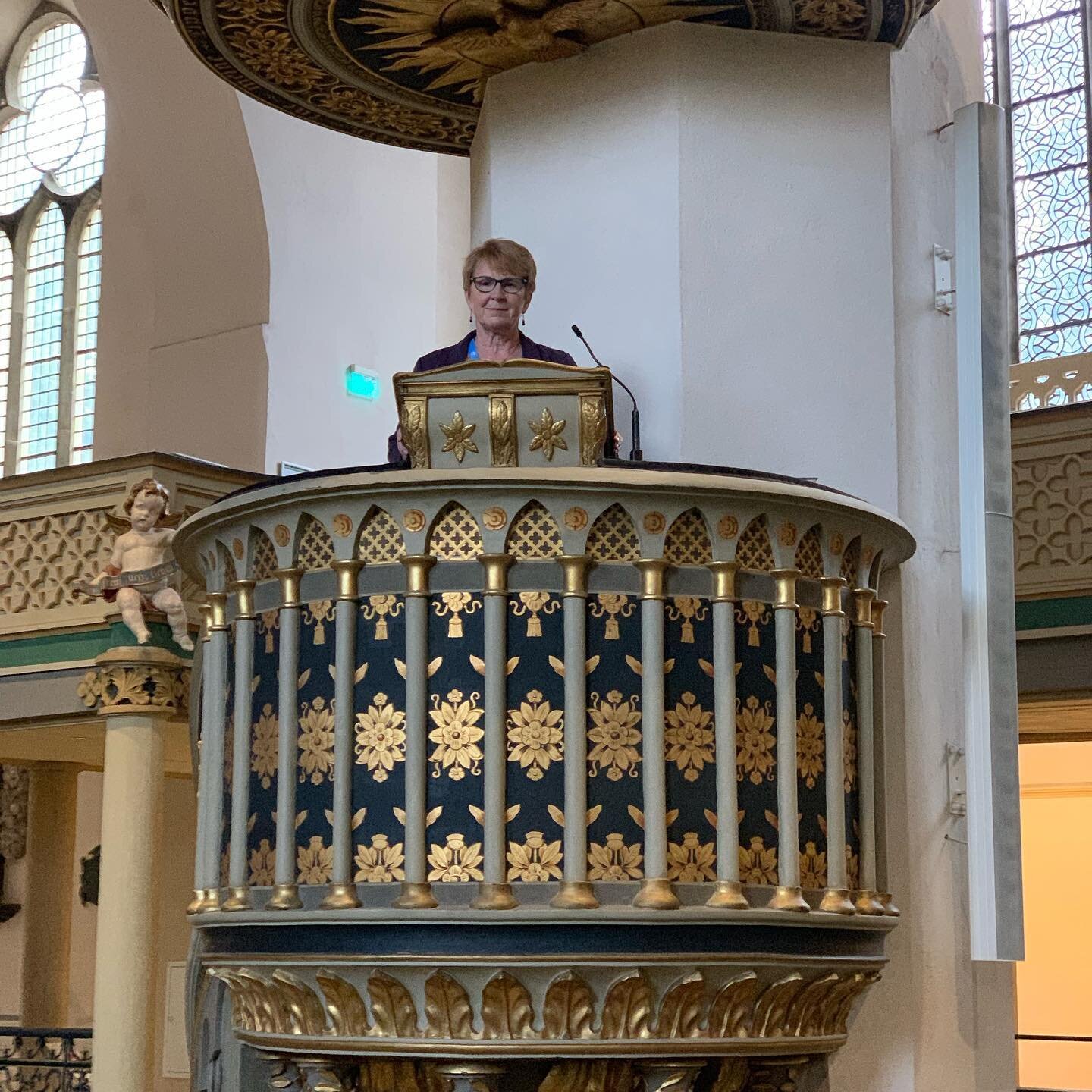
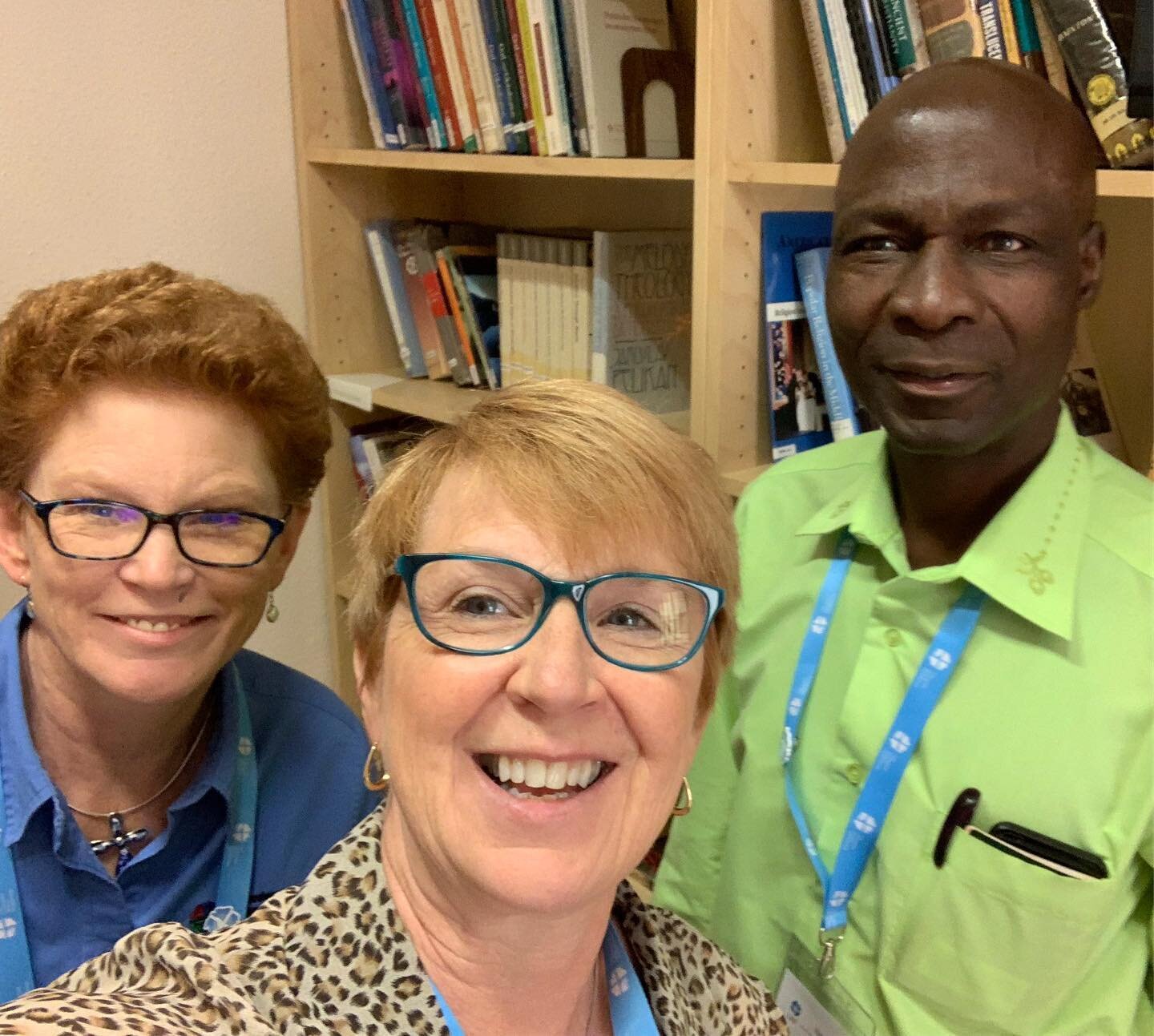
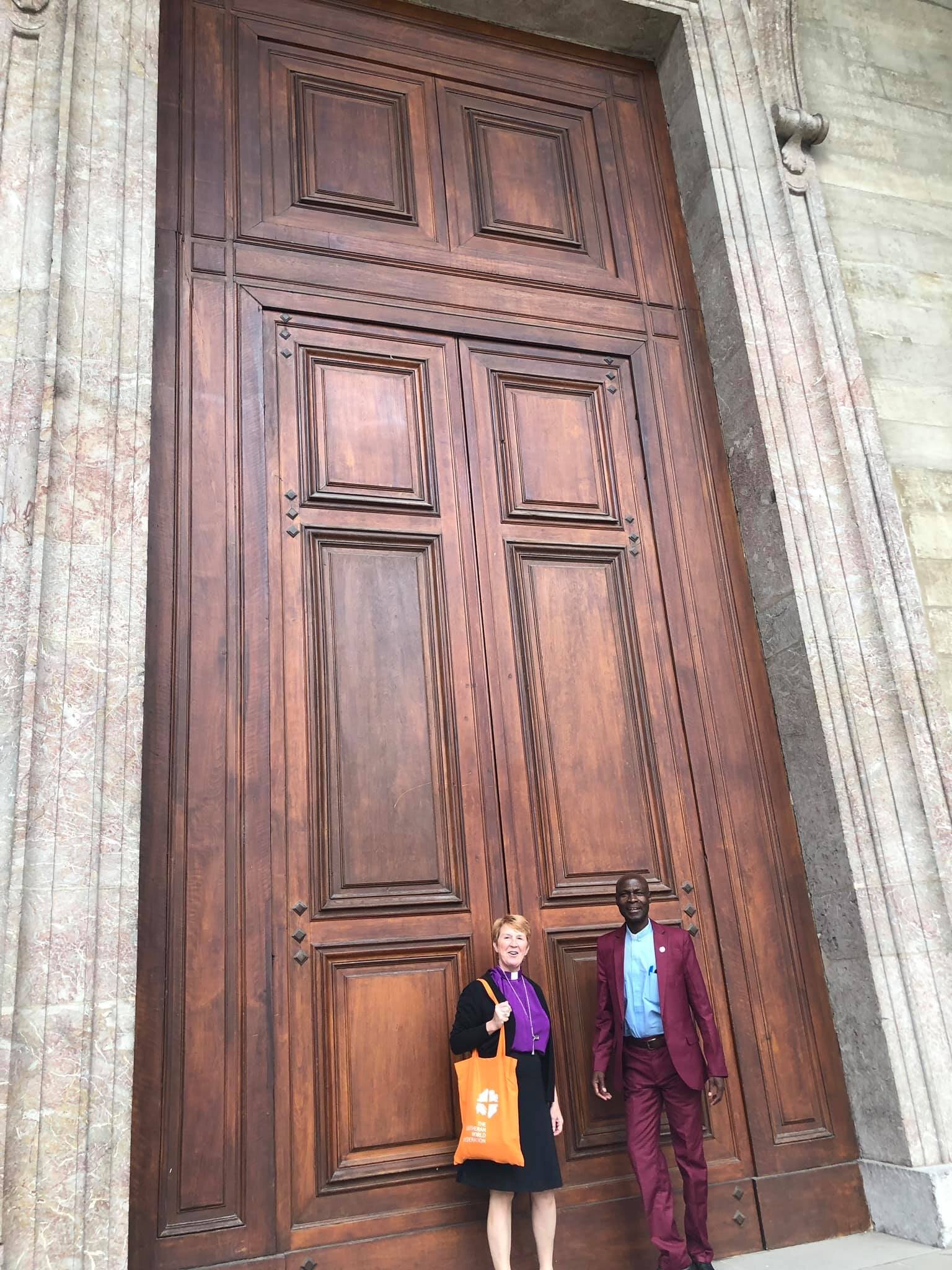
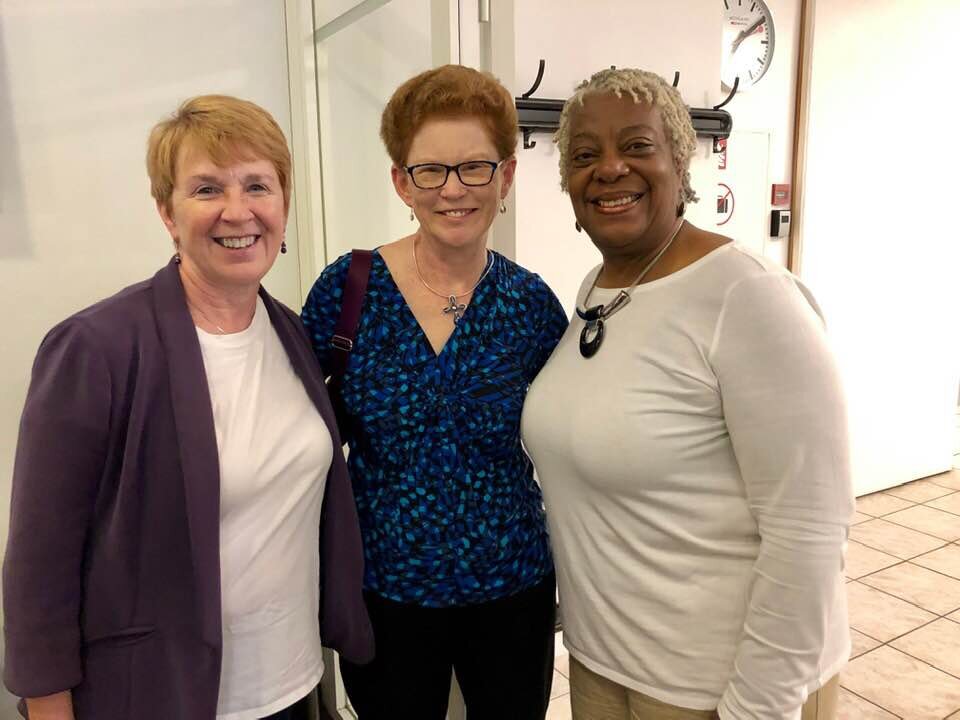
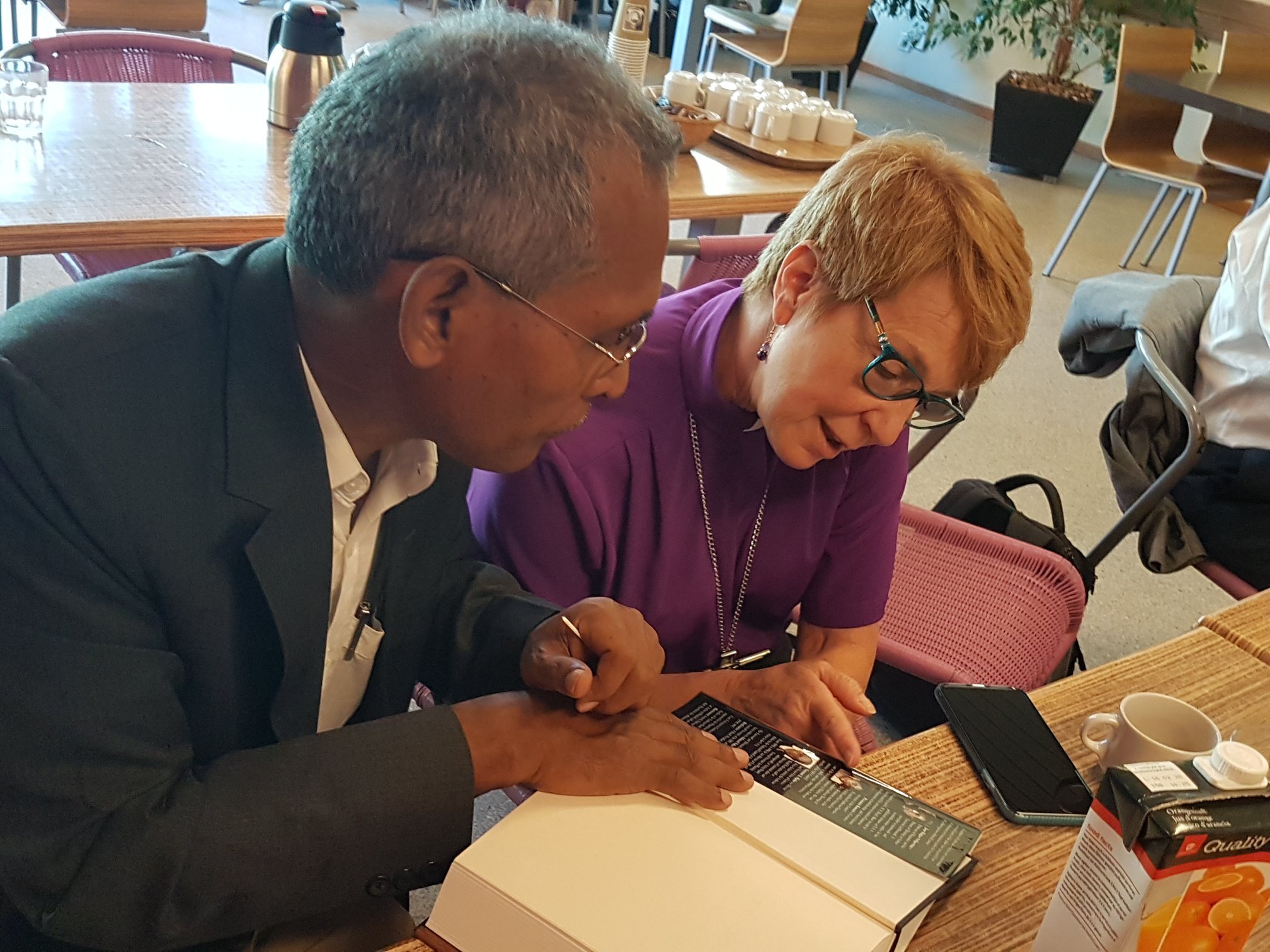
P.S. I encourage you to visit the LWF web site at www.lutheranworld.org for more information and resources.
The Lutheran World Federation Vocational pillars:
Diakonia (Service)
After the war there were 50 million displaced people, and the LWF was big part of helping resettle them around the world through their connections. Today, LWF World services continues to serve millions of refugees and internally displaced people through 25 country programs, refugee camps and resettlements
Mission
After the war LWF adopted orphaned churches (such as the Lutheran Church in Tanzania, which had been founded by Germany), after their parent countries could no longer sustain them. Now, Lutheran churches are emerging all over the world and the LWF supports and connects them through projects and leadership development.
Joint Theological Work
“A theology on its own is a theology at risk.” Different Lutheran perspectives from around the world help us to hone our Lutheran identity and speak as a public church.
Unity—both gift and task
The LWF worked with the Roman Catholic church, for instance, on the 1999 joint declaration of justification.
Understand the work of the LWF Communion office and the Wittenberg Center
Create a community of peers to form a leadership support network
Learn from one another about leadership in the church in context – joys, challenges, similarities and differences
Connect with sites of historic Lutheranism to reaffirm our contemporary identity in the tradition of the reformation.

